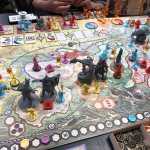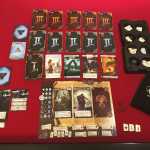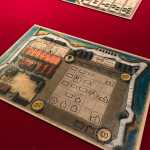Review: PUSH

Good, solid family card games are hard to find. Either they are too repetitive, too many rules, or just not that fun, so you end up settling on old games that everyone grew up with. As a member of an extended family that tends to prefer card games over board, holidays are usually a time for me to test the waters with new games to see how they do.
Going into Christmas this year, I'm pretty confident I have a winner on my hands, with a game I picked up from BGGCON 2018. And I'm pretty sure I won't have to push my luck with it either.
(Heh heh heh. Puns.)
PUSH is a simple push-your-luck card game by Prospero Hall, where players alternate turns drawing colored cards numbered 1-6 into stacks to create unique, non-matching sets to get the most points. On a player's turn, they draw cards to add to up to three columns, which can only contain cards of unique number and color.
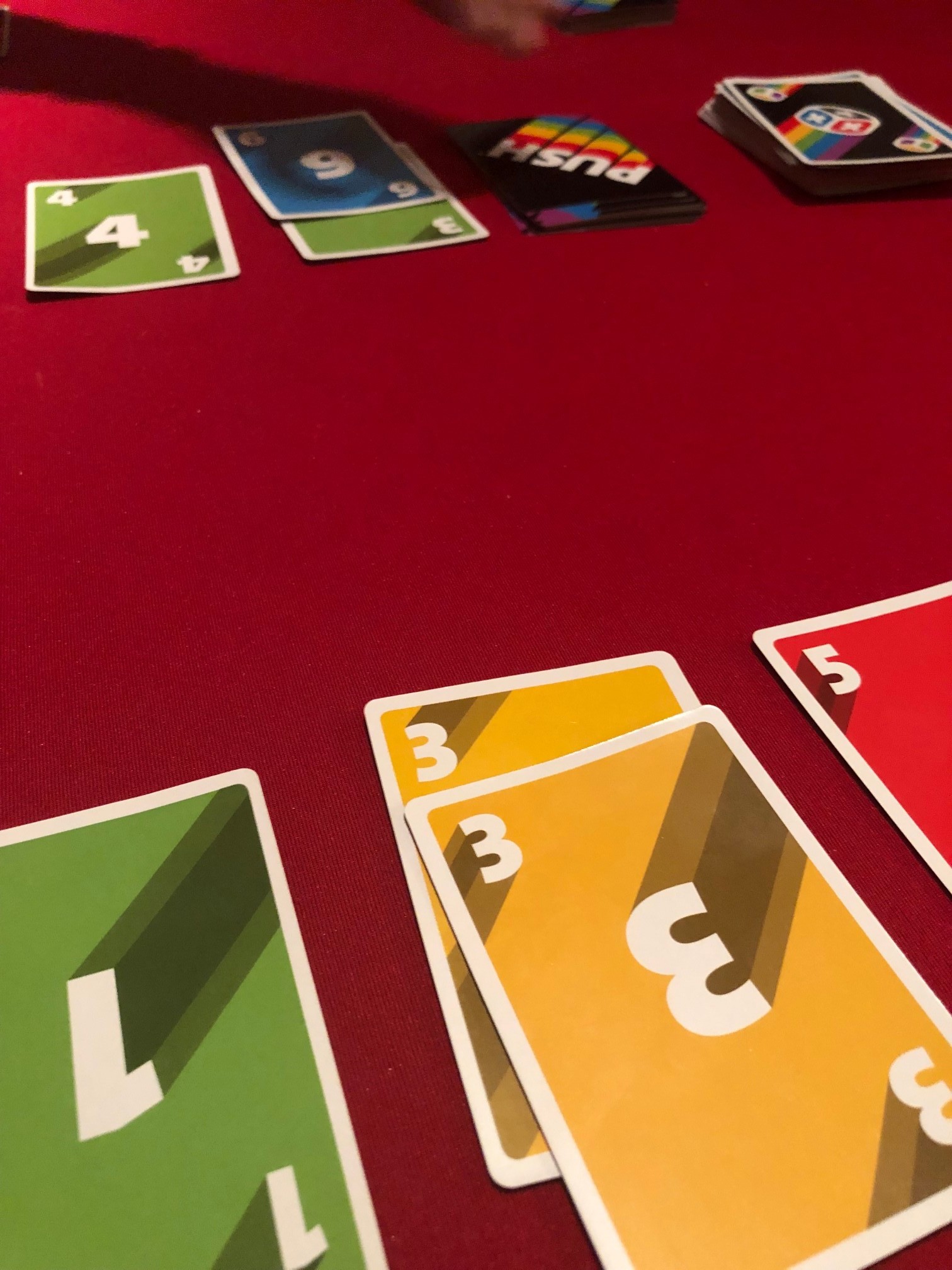
At any time the player can stop, take all the cards in any column of their choice, and end their turn. If they do this, players go around the table taking the remaining sets until there are none left. However, if the player happens to draw a card they cannot place in any of the three columns, they immediately end their turn without drawing, and have to roll a colored die and discard all cards in their tableau (called the "bench") that match that die's color. Even worse, your opponents still get to pick cards from the available sets. There's a clear cost to pushing too far, which makes the mechanic work very well.
Furthermore, scattered in the deck are black Roll cards, which if drawn means an instant roll of the die where you could lose cards in your bench. These don't cause you to have to stop drawing (unless you draw more than 3 in a turn), but they hurt if you've got a big set of a color and the die roll doesn't go your way. Even more devious - if you collect the cards when taking cards on another player's turn, you still have to roll! This makes for a fun, light strategy when you place roll cards on your turn - make that nice high-point stack cost just a bit more.
Finally, there are "switch" cards that alter the order in which opponents claim from the play area after a turn ends - this keeps seat order from being too big of a factor during the game.
In order to mitigate bench losses, you can skip your turn to "bank" a certain color in your bench, which allows you to place them face-down near you, effectively shielding them from being lost to die rolls for the rest of the game.
This creates an interesting, engaging dynamic - you have to not only balance keeping your sets in your bench from getting too high to be too costly to lose, but also when drawing consider what your opponents will get. Sure, you might be able to get 15 points in that column, but if one of your opponents is getting 10 from another column on your turn, is that really worth it? Should you keep pushing and risk a fail, which hurts a lot, or stop while you're ahead? Is banking this turn worth losing a chance to get more points by pushing? Or is that stack of 15 blue points too scary to see blow away in a bad die roll?
Good chance games make you feel that, even though there is a good element of luck, you're still somewhat in control of your own destiny. Good push-your-luck games do this really effectively, keeping you feeling that victory is well within your grasp, but there's still enough variance to keep the game interesting and allow anyone the chance to win.
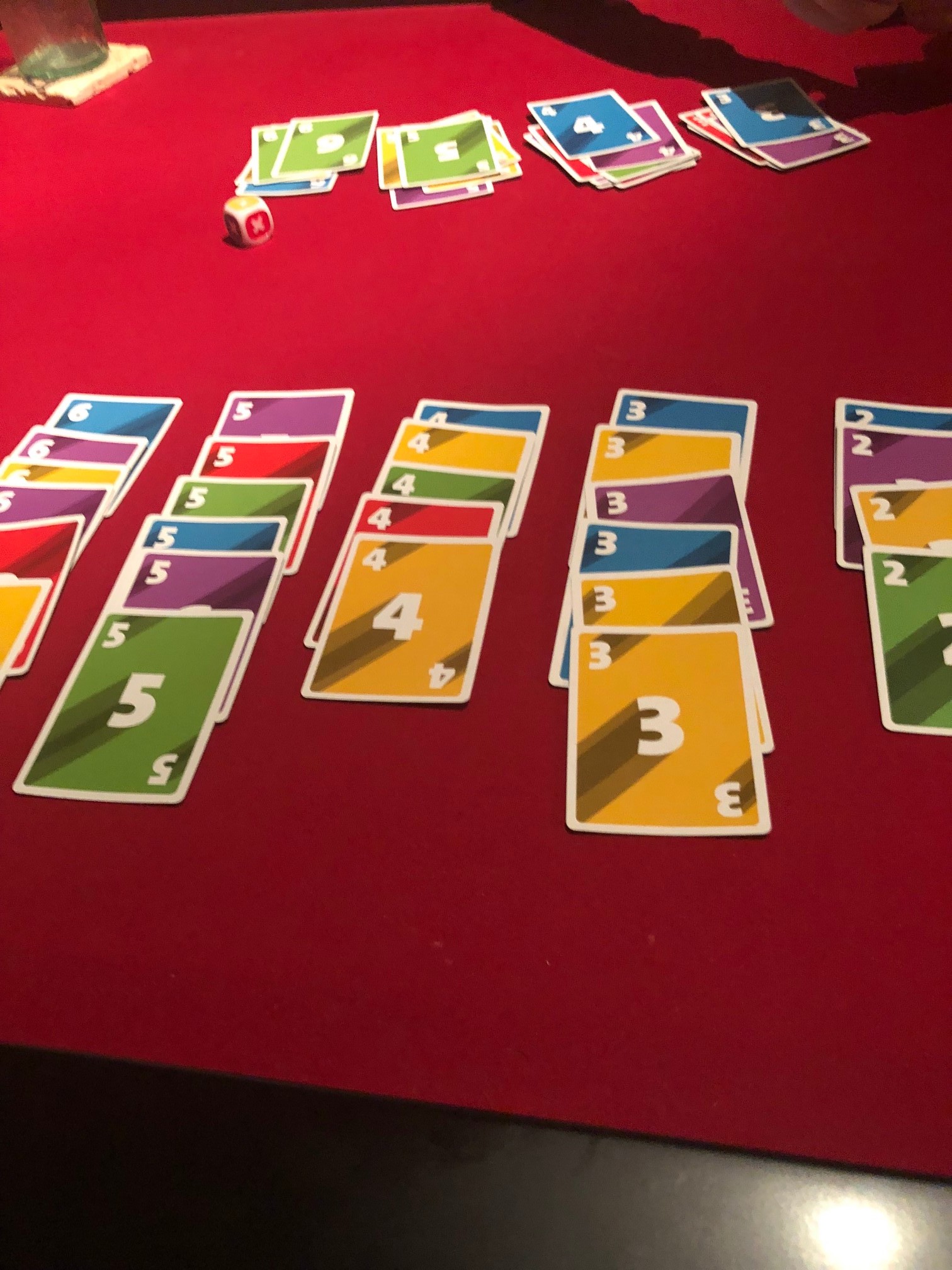
PUSH does this really well. It's a light game - don't get me wrong - but where the complexity comes in is in your risk calculations; is pushing worth it? I can't tell you the amount of times I've had playing this game where I said, "Screw it, I'm pushing!" because the allure was just too great. Add to that the game plays in about 20 minutes, and even losing doesn't feel too bad, as you can always just pull a "best out of three?" with your tablemates, and I've found generally people are game.
If there's a con, it's that if you fall too far behind, it's really hard to catch back up, due to there being a limit to the number of points you can make per round. You'll have to do a sustained push over multiple rounds to get back in, which is always risky. I'm mixed on how I feel about this - on one hand, it prevents a dramatic last-chance clawback at end of game, but it also makes you consider your longer-term strategy in the game (as opposed to just relying solely on luck).
Overall, I'd recommend PUSH as a good light filler game to play with friends or family, if you're looking for a fun, light luck game to have on the table.
Pros
Fun and and easy to learn
Clear rules make it accessible to anyone
Pure essence of a push-your-luck game
Gameplay cadence is perfect for a quick, light game
Cons
Really hard to catch back up if far behind
If too many players, it can drag a tiny bit
Limited availability in stores at the moment
great
Board game reviews and news from Austin, Texas. We provide no-nonsense reviews about all kinds of games. With flair.

